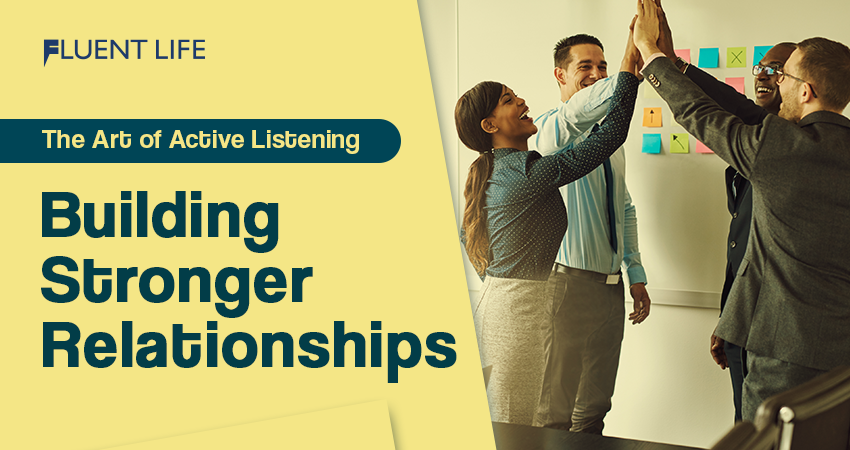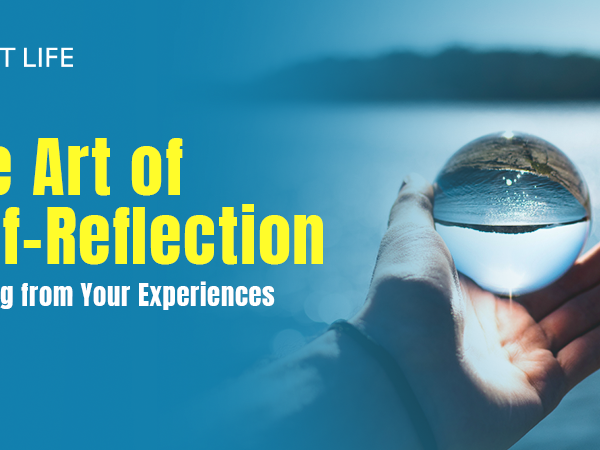The art of Active listening is key for creating better relationships. It’s not just hearing the words, but really understanding them. Showing attention and empathy is essential. Maintain eye contact and use body language that shows interest. Paraphrasing helps ensure understanding. Additionally, avoid judging and don’t interject with personal opinions. Validate the speaker’s feelings to create a safe space. Furthermore, ask open-ended questions to explore deeper. Summarizing or clarifying also shows engagement. In conclusion, active listening strengthens relationships based on trust, understanding, and empathy. Pro Tip: Practice regularly for improved communication.
Importance – Art of Active Listening
Active listening is a must-know skill. It is essential for building and maintaining relationships. It means focusing on the speaker, understanding their perspective, and responding attentively. Active listening builds trust, enhances communication, and increases mutual respect.
We show our genuine interest in the speaker by actively listening. This makes them feel heard and understood. We can also understand their emotions and intentions better.
The art of Active listening also helps us avoid misunderstandings and conflicts. We clarify unclear points by asking relevant questions. This shows the speaker that we are engaged and interested in understanding them.
Pro Tip: To become a great active listener, practice eye contact, no distractions, and summarizing/paraphrasing key points during conversations. These techniques will help you improve your listening skills and relationships.
Fundamentals – Art of Active Listening
Master the art of active listening for stronger relationships. Here’s five principles to get you started:
- Be present & attentive.
- Don’t interrupt.
- Paraphrase and summarize.
- Ask open-ended questions.
- Show empathy.
Adapt your listening style to different people and situations. Understand cultural nuances and nonverbal cues. Make active listening a priority in all your life – personal and professional. You can strengthen your relationships and increase your knowledge.
So, turn off distractions. Be truly present & engaging. Show you really care. Don’t miss out on the opportunity to build stronger connections. Start actively listening now!
Also Read: Top 100 Commonly Used A to Z Phrasal Verbs for English Fluency
Building Stronger Relationships Through Active Listening
Active listening is a great way to boost relationships. By focusing on others, we demonstrate respect and appreciation. We can understand their views, acknowledge their feelings, and establish mutual trust. This builds understanding and encourages strong, meaningful connections.
When actively listening, we must not interrupt nor think about responses. Rather, we must focus on the speaker’s words, body language, and emotions. Give verbal and non-verbal cues to show interest. This encourages open communication and makes the speaker feel respected and heard.
Besides hearing words, active listening means asking for clarification and summarizing what was said. This stops miscommunication and shows genuine interest in the speaker’s message.
Eye contact is essential, too. It proves our focus and sincerity. Plus, it helps us understand the emotional context by looking at facial expressions and body language.
Research by Stanford University found that active listening helps relationship satisfaction and strengthens feelings between individuals. The study highlights the importance of truly listening to others’ needs, fears, and stories.
Developing Active Listening Skills
Active listening is about more than just hearing. It means engaging with the speaker and creating a safe space for open communication. To hone your active listening skills, attend workshops or look into resources that provide strategies. Train yourself in everyday conversations and stay present in each interaction.
In a noisy, distracting world, active listening stands out. It helps you understand others better, build trust, and form meaningful relationships. Don’t miss out – start actively listening today! Experience the power it has on your connections. Begin your journey now!
Also Read: How to Avoid Common Mistakes in English Conversations
Overcoming Common Challenges to Active Listening
Active listening is essential for better relationships. To get past the typical difficulties of active listening, we have to be mindful of the barriers that stop us from truly listening to others. Here are five noteworthy points to take into account:
- Distractions: In today’s hectic world, distractions are all around us. Make a conscious effort to get rid of or lessen distractions while engaging in a conversation. Put your phone away, close any unnecessary tabs on your computer, and create a quiet atmosphere.
- Preconceived notions: It can be easy to form opinions or make assumptions about what someone is saying before they finish. Avoid making judgments rapidly and aim to understand the speaker’s view without bias.
- Interrupting: We might be so keen to share our own thoughts or opinions that we cut off the speaker in the middle of their sentence. Show respect by practicing patience and let the person speak until they are done before responding.
- Mind wandering: Our minds tend to wander, particularly during lengthy conversations or monotonous discussions. Stay attentive by focusing on the speaker’s words and non-verbal cues. If you notice your mind drifting, bring yourself back into the conversation in a gentle manner.
- Lack of empathy: Empathy is a key part of active listening as it helps us link with others’ experiences and feelings emotionally. Develop empathy by putting yourself in the speaker’s shoes and trying to comprehend their emotions and perspectives.
Besides these points, remember that active listening needs practice and continual progress. Not only does being an active listener benefit your relationships, it also enhances your communication skills as a whole.
As you refine your active listening skills, bear in mind that each person has unique experiences and perspectives that affect their communication style. By recognizing these individual differences, you can modify your listening style for more efficient communication.
A true fact: According to a study by the University of California, active listening can increase relationship satisfaction and reduce conflicts.
Also Read: Master the Art of Small Talk: Engaging Conversation Tips
Implementing Active Listening Techniques in Different Areas of Life
Listening actively involves focusing and completely understanding the speaker. This ability is necessary in life, ranging from intimate relationships to work situations.
- In Personal Relationships:
- Active listening strengthens connections by displaying genuine interest and empathy.
- It helps communication, resolving conflicts with mutual understanding.
- Empathic listening creates a safe atmosphere for those close to you to express themselves.
- It builds trust and increases closeness, leading to healthier relationships.
- In Parenting:
- Doing active listening enables parents to emotionally connect with their kids.
- By really hearing their wishes or joys, parents can give suitable advice.
- This method grows emotional intelligence and increases self-esteem in children.
- Active listening maintains open communication within the family.
- In the Workplace:
- Engaging in active listening assists leaders to understand their teams better.
- This approach improves collaboration, problem-solving, and productivity.
- Giving employees a voice through active listening establishes a good work culture.
- Using this technique during meetings or one-on-one discussions guarantees effective teamwork.
- In Mental Health Support:
- Active listening plays a key role in aiding people dealing with mental health issues.
Also Read: The Role of Humor in Engaging English Conversations
Conclusion
The art of active listening can help build stronger relationships. It involves more than just hearing; it’s about understanding the speaker. Paraphrasing, asking questions, and providing nonverbal cues shows attention and support.
Active listening brings trust and empathy. People feel heard and valued, which leads to open communication and deeper connections. It helps us understand different viewpoints, avoid misunderstandings, and solve conflicts. When we give our full presence, relationships thrive on respect and understanding.
Active listening also has personal and professional benefits. It improves problem-solving, collaboration, and leadership. To enhance listening skills, be present, maintain eye contact, avoid interruptions, and show genuine interest. Commit to active listening to improve relationships and make a positive impact. Know More – The Fluent Life
Frequently Asked Questions
Q1: What is active listening?
A: Active listening is the conscious effort of fully focusing on, understanding, and responding to a speaker during a conversation. It involves giving your full attention, maintaining eye contact, and providing verbal and non-verbal feedback.
Q2: Why is active listening important in building stronger relationships?
A: Active listening is crucial for building stronger relationships because it helps foster trust, empathy, and mutual understanding. It allows individuals to feel heard, valued, and respected, leading to deeper connections and better communication.
Q3: How can I improve my active listening skills?
A: Some ways to improve active listening skills include minimizing distractions, maintaining eye contact, avoiding interrupting, asking clarifying questions, and providing verbal and non-verbal feedback. Practicing empathy and staying focused on the speaker’s message are also key.
Q4: What are the benefits of active listening?
A: Active listening offers numerous benefits such as better understanding of others’ perspectives, enhanced problem-solving abilities, reduced conflicts, improved teamwork, increased productivity, and the establishment of meaningful connections.
Q5: What are common barriers to active listening?
A: Common barriers to active listening include distractions, preconceived notions, selective hearing, interruptions, lack of empathy, biases or prejudices, emotional detachment, and focusing on formulating responses rather than understanding the speaker.
Q6: How can active listening help resolve conflicts?
A: Active listening can help resolve conflicts by creating an environment of open communication and understanding. It allows parties involved to express their perspectives, feelings, and concerns without judgment. This fosters empathy, builds trust, and facilitates finding shared solutions.






